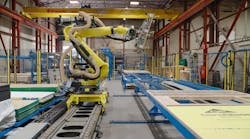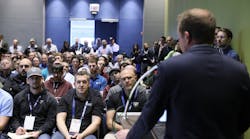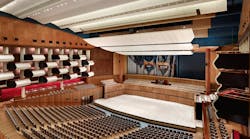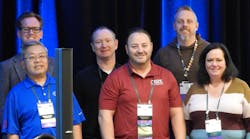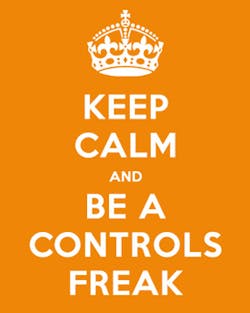Controls technicians are the vital link between your building-control-system designs and your customers. If you work with or know someone who wants to become a “controls freak”-style technician in the building-automation and controls industry, you have to check out these 101 ways they can make it happen.
I hope this list strikes a chord with the community and gets shared amongst those who are or work with controls and automation technicians.
Here is the fourth and final group of ways to rock, numbers 76 through 101.
If you missed the first group (numbers 1 through 25), here is the link: http://hpac.com/building-controls/101-ways-rock-building-automation-and-controls-technician-part-1-4
If you missed the second group (number 26 through 50) here is the link: http://hpac.com/building-controls/101-ways-rock-building-automation-and-controls-technician-part-2-4
The link for the third group (numbers 51 through 75) is: http://hpac.com/building-controls/101-ways-rock-building-automation-and-controls-technician-part-3-4
We hope you’ve enjoyed this series and shared it with your favorite building-controls technician!
76. If you can get certified on something or add a few letters after your name, do it!
77. Own a battery-powered tool set—the kind where the same battery and charger works for all kinds of tools.
78. Volunteer to take on a project doing something you have not done before.
79. Know the date when the electricians will have power for your enclosures and controllers. Start programming and doing point-to-point checkouts right then.
80. Bring ALL your tools, ALL the time. Do not get caught making trips back home or back to the office.
81. Get a good laptop computer. Do not settle for the old hand-me-down if it locks up, takes an hour to get to the desktop, has a bad serial/ethernet/USB port or anything else that is just going to waste time out on the job site. A laptop is your most important tool when it comes to building-automation systems.
82. Join some industry message forums like The Controls Freak Discussion Forums (http://Forums.TheControlsFreak.com) Introduce yourself to everyone, speak up, and contribute.
83. Get your work emails on your phone.
84. Find others in your company who want to make a difference and build off of each other.
85. Know how to interpret the trend logs or historical information to be able to tell what is happening or what happened on a building-automation system.
86. Always look at the big picture. Both for your team members and customers. You must take the blinders off and see that others have to deal with in their job duties. Then you can find out what you can do to make their jobs easier.
87. When troubleshooting a problem always be asking questions. Why is this doing that? Keep tracing further back or deeper into the programming or wiring until you come to the source.
88. When a strange problem pops up and creates a large effect that you have not seen happen before, ask everyone, inlcuding yourself, “What changed?” Everything was working fine and then all of a sudden something big happened. Something changed. Ask.
89. Get some serious “man” tools that are a national brand or sold by a national chain store. They do not have to be an expensive brand name, but they should not be available for purchase at the dollar store.
90. When you are not on the clock, such as on the weekend, take a couple of hours and just search for stuff online—like how certain mechanical systems work, or some sort of programming unrelated to controls. Watch YouTube videos of industry stuff.
91. If you are in a union, ask about teaching a class about controls. You probably know 100 times more than most of the guys at the hall.
92. Wire nuts. Stranded copper, twist before putting inside the wire nut. Solid copper, use the wire nut to twist the conductors.
93. Make sure your trend logs or historical values give you at least 30 hours of time. When something happens today at 9 a.m. you may not get the call or be able to connect with the system until the next day. If you only have 24 hours of time, you may have lost the data that would have shown what caused the problem.
94. Attention to detail. This is huge in controls and automation. You can not do things “sort of correctly” or “almost right.” It is all in the details.
95. When writing emails to customers, use spell check and good grammar. Technicians in the field get a bad rap for not being the “smart ones.” Show them you are not “that guy.”
96. Never take a new job position for less money—unless you oversold yourself on the last job you just got let go from.
97. Always try to meet with the end user/customer and discuss what the engineer has in his scope or sequence of operations. When possible, get the customer to allow you to do what they want and not what the engineer copied and pasted from the last 10 projects. You and the end user are who will have to live with the system once everyone else leaves.
98. Get an 11-in-1 screwdriver. They are awesome, cheap, and you will use it daily.
99. As you gain years of experience in the industry, begin to become laser-focused in one area instead of trying to do it all.
100. Do not be afraid to climb high, crawl low, or cram into small spaces to get the job done.
101. Set up a profile on LinkedIn and fill in your work experience, projects, published works (see Item #10), endorsements and recommendations. “Connect” with me once you do (http://www.linkedin.com/in/abelramirezii). And if you get a job using just your LinkedIn profile without a written resume, I want to hear all about it.

